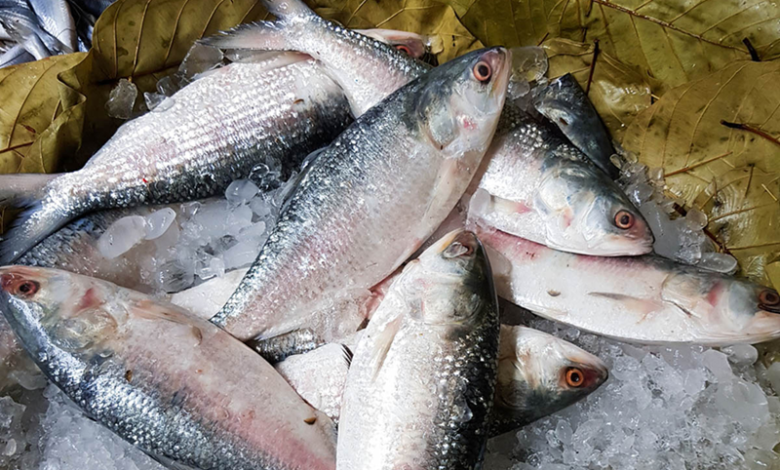No Hilsa Fish for Durga Puja? Bengalis Face a Culinary Crisis Amid Bangladesh Unrest

News Mania Desk/Agnibeena Ghosh/7th August 2024
Bengalis in India might have to forego their beloved hilsa fish during this year’s Durga Puja celebrations due to the ongoing crisis in Bangladesh. Hilsa, also known as ilish, is a staple in Bengali cuisine, especially during festive times. The fish, famous for its soft, oily texture and exquisite flavor, is traditionally sourced from the Padma River in Chandpur, Bangladesh. Popular dishes include ilish khichuri, bhapa ilish (steamed hilsa), shorshe ilish (hilsa in mustard sauce), ilish paturi (hilsa wrapped in banana leaves), and ilish fry.
Recent tensions in Bangladesh have significantly disrupted the trade, causing uncertainty among fish traders. The Indo-Bangladesh border, a crucial conduit for hilsa imports, has seen halted export-import activities over the last few days, affecting the supply chain.
In 2021, Bangladesh accounted for 86% of the global hilsa supply, contributing 1.15% to the country’s GDP. Despite a 2012 ban on hilsa exports to meet domestic demand, former Prime Minister Sheikh Hasina had been sending consignments to India as a goodwill gesture. This annual tradition typically kicks off in August when Indian traders request hilsa stock from the Bangladesh government, ensuring ample supply for the Durga Puja celebrations in October.
Anwar Maksood, Secretary of the Fish Importers’ Association, expressed concerns over the current situation. “Every August, we write to the Bangladesh government for the Hilsa stock, just in time for the Durga Pujo in October,” Maksood told News18. He recalled that last year, Bangladesh promised 3,000 metric tonnes of hilsa but only delivered 900 metric tonnes. With the current suspension of exports and imports, the availability of hilsa this year remains uncertain.
The scarcity of hilsa is more than just a culinary inconvenience; it’s also an economic blow. The fish, which sells for Rs 2,200-2,400 per kg, is a significant revenue source for traders. The halted trade has already led to substantial financial losses, with traders facing potential losses amounting to lakhs of rupees.
Hilsa’s popularity isn’t confined to Bengal. In Andhra Pradesh, the fish, known as pulasa, is so highly valued that there’s a saying: “Pulasa is worth eating even if you have to sell your mangala sutra.” In the Godavari districts, pulasa is a cherished delicacy. In Bengal, hilsa holds cultural significance; it’s often bought in pairs for auspicious occasions like Saraswati and Lakshmi Puja and was traditionally given as a wedding gift.
The cultural importance of hilsa extends to Kolkata’s football scene. The city’s two major football clubs, East Bengal and Mohun Bagan, celebrate their victories with specific dishes: hilsa for East Bengal and prawn (chingri) for Mohun Bagan. This tradition underscores the deep-rooted connection between the fish and regional pride.
As the political and economic crisis in Bangladesh continues, the ripple effects are being felt across the border in India’s culinary and cultural traditions. The fate of hilsa on this year’s Durga Puja platter remains uncertain, leaving Bengalis and traders alike hoping for a resolution that will bring their favorite fish back to their festive tables.






